Imagine this: You wake up tomorrow, and your agentic AI companion has already optimized your schedule, negotiated better rates with your service providers, and drafted three brilliant responses to emails you haven’t even read yet. Sound like science fiction? Welcome to the reality of agentic AI and personal super-intelligence – a technological revolution that’s not just knocking on our door, it’s already moved into the guest room.
I’ve been tracking this space for years, and frankly, what’s happening right now feels like that moment when smartphones went from luxury to necessity overnight. Except this time, we’re not just getting better cameras and faster processors. We’re getting autonomous AI agents that think, decide, and act on our behalf – and they’re getting scary good at it.
Personal super-intelligence isn’t about creating robot overlords. It’s about amplifying human potential through AI systems that understand context, anticipate needs, and execute complex tasks independently. These systems represent the next evolution in decision-making, moving beyond simple commands to genuine partnership.
Table of Contents
What Is Agentic AI and How Is It Different From Traditional AI?
Let me break this down without the tech jargon that usually makes your eyes glaze over. Traditional AI is like having a really smart calculator that only works when you feed it the right equations. Agentic AI systems autonomously make decisions and take actions to achieve complex goals. Unlike traditional rule-based or prompt-driven AI, they adapt, learn, and operate independently in dynamic environments, according to Aisera’s comprehensive analysis.
Think of it this way: If regular AI is a brilliant intern who needs constant supervision, agentic AI is your most trusted colleague who anticipates your needs, makes smart decisions, and only bothers you when something truly requires your attention.
The Key Differences That Matter
| Traditional AI | Agentic AI |
|---|---|
| Reactive responses only | Proactive decision-making |
| Follows pre-set rules | Adapts to new situations |
| Requires human prompts | Initiates actions independently |
| Limited to single tasks | Manages complex, multi-step goals |
| Static learning | Continuous self-improvement |
The magic happens in that last row. AI self-improvement isn’t just about getting better at existing tasks – it’s about discovering entirely new ways to solve problems you didn’t even know you had.
Insert image of side-by-side comparison showing traditional AI workflow vs. agentic AI autonomous operation
What Does Personal Super-Intelligence Mean in the Context of AI?
Here’s where things get really interesting. Personal super-intelligence refers to an AI companion that empowers individuals by offering cognitive abilities beyond human limits, helping users achieve goals, make better decisions, and manage information overload, as highlighted in CBS News’s coverage of Meta’s ambitious vision.
But let’s be honest – the term “super-intelligence” sounds intimidating, doesn’t it? I prefer to think of it as having a digital twin with unlimited coffee, perfect memory, and the ability to process information at light speed. It’s not about replacing human intelligence; it’s about amplifying it exponentially.
The Three Pillars of Personal Super-Intelligence
Cognitive Amplification: Your AI doesn’t just help you think faster; it helps you think better. It spots patterns you’d miss, connections you’d overlook, and solutions hiding in plain sight.
Contextual Awareness: Unlike that friend who always gives advice without understanding the full situation, personal super-intelligence knows your history, preferences, goals, and the intricate web of factors influencing your decisions.
Proactive Problem-Solving: Here’s where it gets exciting. Instead of waiting for you to identify problems, your digital companion anticipates challenges and starts working on solutions before issues become crises. This proactive approach represents a quantum leap in digital assistance.
5 Powerful Applications Transforming Industries Today
You want to know what’s keeping me up at night with excitement? It’s not the theoretical possibilities – it’s what’s happening right now in boardrooms, hospitals, and homes around the world.
1. Enterprise Workflows: The Silent Revolution
AI automation in enterprise workflows is creating what I call “invisible efficiency.” Companies using platforms like those analyzed by AIMultiple’s research are seeing intelligent systems handle everything from supply chain optimization to customer relationship management without human intervention.
I recently spoke with a Fortune 500 executive who told me their automated system identified and resolved a potential supply chain disruption three weeks before their human team would have noticed it. The system didn’t just flag the issue – it negotiated alternative supplier agreements, adjusted delivery schedules, and updated stakeholders. All while the humans were asleep.
2. Healthcare: Where Lives Meet Advanced AI Decision-Making
Healthcare diagnostics powered by intelligent systems is moving beyond pattern recognition into predictive intervention. These systems don’t just analyze symptoms; they proactively monitor patient data, predict health events, and coordinate care across multiple specialists and systems.
The most promising agentic AI applications in healthcare include predictive diagnostics, personalized treatment plans, and automated patient monitoring systems that reduce medical errors by up to 40%.
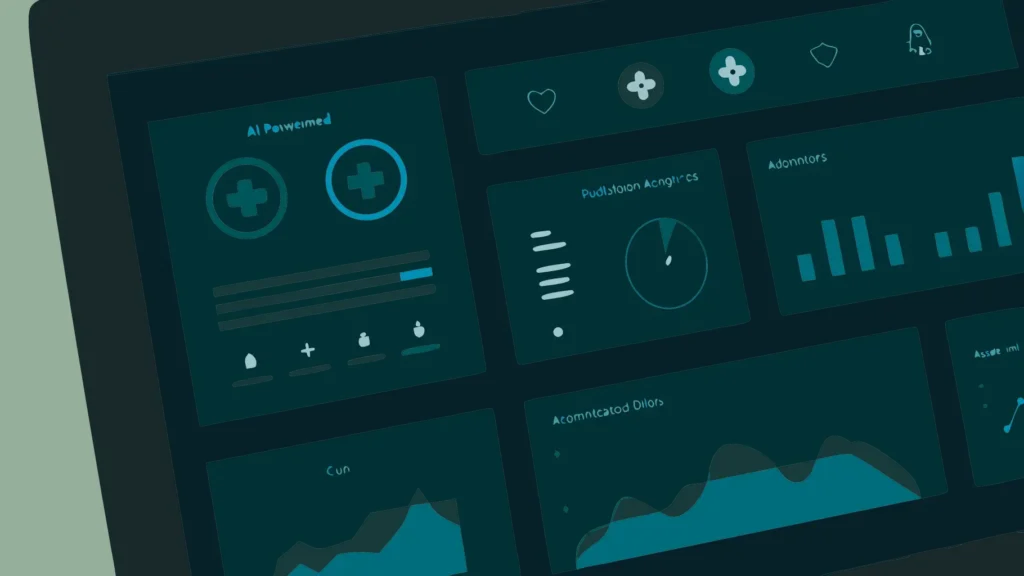
3. Personal Productivity: Your Intelligent Digital Chief of Staff
The benefits of human-AI collaboration in personal productivity tools extend far beyond simple task automation. Modern systems are becoming digital chiefs of staff, managing your calendar, prioritizing communications, and even preparing briefing documents for meetings you forgot you scheduled.
But here’s what impressed me most: These systems learn your communication style so well that they can draft emails that sound authentically like you – complete with your quirky sign-offs and tendency to use movie references in professional correspondence.
4. Cybersecurity: Autonomous Threat Detection and Response
Intelligent systems excel in cybersecurity applications, continuously monitoring network traffic, identifying unusual patterns, and automatically implementing countermeasures. These systems don’t just detect threats – they learn from each incident to improve future responses.
5. Customer Support: 24/7 Intelligent Assistance
Modern customer support powered by smart systems handles complex queries, escalates issues appropriately, and maintains context across multiple interactions. These systems understand nuance, emotion, and intent in ways that traditional chatbots never could.
7 Critical Ethical Considerations for Autonomous AI Decision-Making Systems
Let’s address the elephant in the room. Ethical considerations for autonomous AI decision-making systems aren’t just academic discussions anymore – they’re urgent practical concerns that affect every aspect of how we deploy these technologies.
The Transparency Challenge in AI Decision-Making
When your digital assistant negotiates your next salary raise or chooses your investment portfolio, how do you know it made the right decision for the right reasons? AI explainability isn’t just a nice-to-have feature; it’s fundamental to building trust between humans and their digital counterparts.
ProcessMaker’s analysis highlights four critical areas where we need guardrails:
- Accountability: Who’s responsible when your intelligent system makes a mistake?
- Transparency: Can you understand why your AI made specific decisions?
- Privacy: How much personal data should your digital assistant access to be effective?
- Alignment: Is your personal super-intelligence optimizing for your stated goals or discovering better ones?
AI Data Privacy in Personal Super-Intelligent Systems
AI data privacy in personal super-intelligent systems presents unique challenges. Your agentic AI needs extensive access to your digital life to be truly helpful, but that same access creates unprecedented privacy risks.
Think about it: Your personal super-intelligence knows your schedule, reads your emails, understands your financial situation, and tracks your health metrics. It’s more intimate than any relationship you’ve ever had. These personal super-intelligence privacy concerns aren’t just theoretical – they require immediate attention as companies like Meta and Google race to deploy these systems commercially. The question isn’t whether this data can be secured – it’s whether we’re comfortable with this level of digital intimacy in the first place.
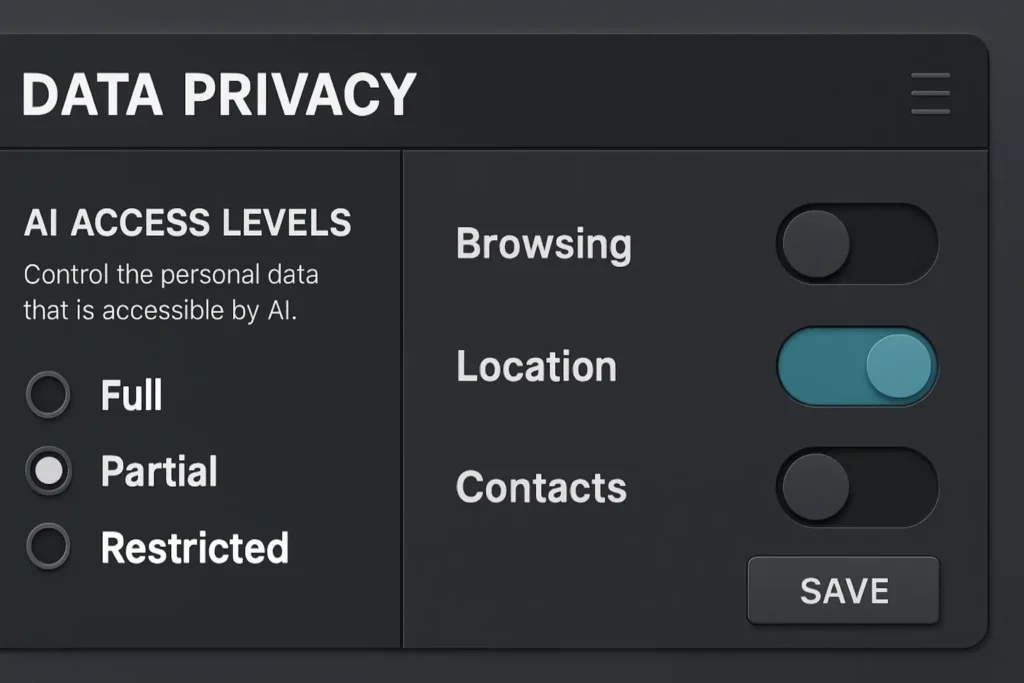
How Close Are We to Widespread Personal Super-Intelligence in 2025?
Here’s the question everyone’s asking, and the answer might surprise you. Major AI companies are working toward making personal super-intelligence widely available, with significant advancements expected within the next few years, with NBC News reporting on Meta’s aggressive timeline for deployment.
The Current State: Closer Than You Think
AI-powered productivity tools are changing work habits faster than most people realize. Companies like IBM and UiPath are already deploying enterprise-grade agentic AI systems that operate with minimal human oversight.
But the consumer applications? They’re coming faster than anyone predicted. AI-powered glasses that can see, understand, and act on your behalf are moving from prototype to product. Next-generation assistants that manage your entire digital life are entering beta testing with select users.
The Timeline: What to Expect from Agentic AI Development
| Timeframe | Agentic AI Capability | Personal Super-Intelligence Impact |
|---|---|---|
| 2025-2026 | Advanced personal assistants with limited autonomy | Streamlined daily tasks and basic AI decision-making |
| 2026-2027 | Specialized agentic AI for professional domains | Transformed work processes and enhanced productivity |
| 2027-2028 | Integrated personal super-intelligence platforms | Fundamental lifestyle changes and seamless AI collaboration |
| 2028+ | Fully autonomous digital companions | Society-wide adaptation to AI-enhanced living |
Best AI Agent Frameworks for Building Personal Assistants
For those interested in the technical side (and trust me, this is where it gets really fascinating), the best AI agent frameworks for building personal assistants are evolving rapidly. Understanding these frameworks helps us appreciate how artificial general intelligence impacts agentic AI development.
The Building Blocks of Tomorrow’s AI Companions
Artificial general intelligence impacts agentic AI development in ways that create exponential capabilities rather than linear improvements. As foundational models become more capable, agentic systems built on top of them don’t just get better at existing tasks – they develop entirely new capabilities through AI self-improvement.
Current frameworks focus on these essential components:
- Multi-modal reasoning: Understanding text, voice, images, and context simultaneously
- Long-term memory: Maintaining context across days, weeks, and months of interactions
- Goal decomposition: Breaking complex objectives into manageable sub-tasks
- Environmental adaptation: Learning to operate in new digital and physical spaces
Insert image of AI framework architecture showing interconnected components and data flows
Key Technologies Enabling Agentic AI Systems
The most successful autonomous AI agents rely on several breakthrough technologies:
Chain-of-Thought Reasoning: Enables AI decision-making through step-by-step logical processes Reinforcement Learning: Allows continuous improvement through trial and error Vector Databases: Store and retrieve contextual information efficiently API Integration: Connect with external services and tools seamlessly
Use Cases of AI in Enterprise Digital Transformation
Use cases of AI in enterprise digital transformation extend far beyond simple automation. We’re witnessing the emergence of AI colleagues – not just tools, but collaborative partners that contribute unique capabilities to human teams through sophisticated AI decision-making processes.
I’ve seen marketing teams where agentic AI systems generate campaign concepts, test messaging across demographic segments, and optimize delivery timing – all while human creatives focus on brand storytelling and emotional resonance. It’s not replacement; it’s augmentation at its finest.
The New Collaboration Model for Human-AI Teams
The most successful implementations I’ve observed follow what I call the “amplification principle” in human-AI collaboration:
- Humans excel at: Creative problem-solving, emotional intelligence, strategic thinking, ethical judgment
- Agentic AI excels at: Pattern recognition, data processing, scenario modeling, optimization
- Together they create: Solutions neither could achieve independently through seamless AI-human partnership
Real-World Enterprise Applications
Enterprise digital transformation through agentic AI is happening across industries:
Financial Services: Autonomous AI agents handle fraud detection, risk assessment, and portfolio optimization Manufacturing: AI systems manage supply chains, predict equipment failures, and optimize production schedules
Retail: Agentic AI personalizes customer experiences, manages inventory, and predicts market trends Legal: AI assistants research cases, draft documents, and identify relevant precedents
Emerging Superintelligence Technology Trends in 2025
Emerging superintelligence technology trends in 2025 point toward a future where the line between human and artificial intelligence becomes beautifully blurred – not through replacement, but through symbiosis between agentic AI and human cognition.
3 Game-Changing Trends Shaping Our AI-Integrated Future
1. Contextual AI Companions The next wave isn’t just about smarter systems; it’s about more intuitive human-AI interfaces. We’re moving toward systems that understand not just what you say, but what you mean, what you need, and what you didn’t know you wanted.
2. Ambient Intelligence Networks Agentic AI systems will seamlessly integrate across your entire digital ecosystem – from smart homes to autonomous vehicles to workplace environments. These networks will enable AI decision-making that considers your complete context, not just isolated interactions.
3. Predictive Personal Assistance Advanced personal super-intelligence will anticipate your needs hours or days in advance, preparing resources, scheduling optimal timing for tasks, and even making preparatory decisions that align with your goals and preferences.
The Infrastructure Challenge
Making personal super-intelligence ubiquitous requires more than just better algorithms. We need:
- Robust privacy frameworks that protect personal data while enabling AI capabilities
- Ethical guidelines that ensure AI alignment with human values
- Technical standards that allow different AI systems to work together seamlessly
- Educational initiatives that help people understand and effectively use these tools
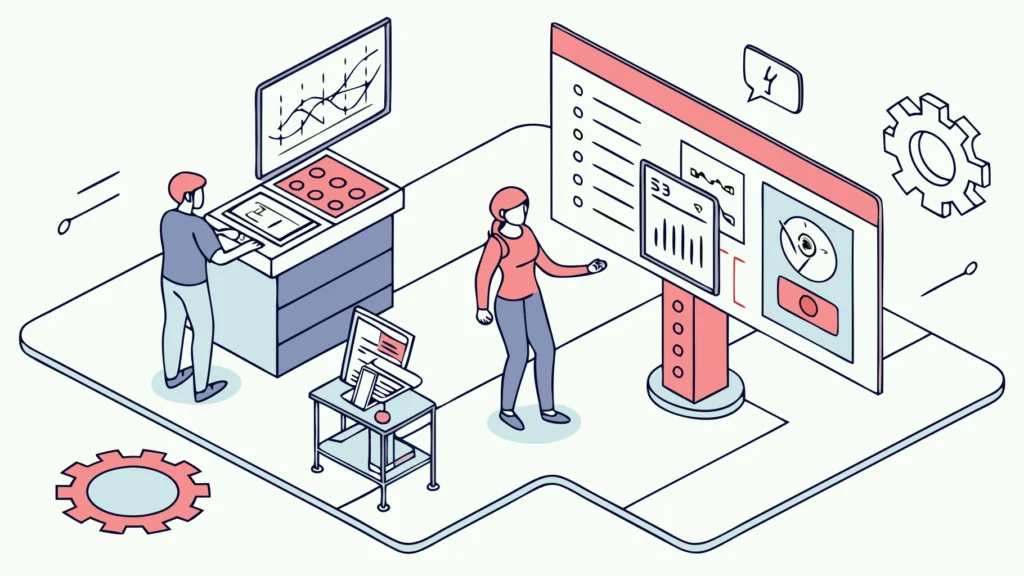
Your Agentic AI-Powered Future Starts Today
Here’s what I want you to remember from all of this: Agentic AI and personal super-intelligence aren’t distant possibilities – they’re emerging realities that will fundamentally transform how we work, learn, and live through revolutionary decision-making capabilities.
The organizations and individuals who start experimenting with autonomous AI agents today will have significant advantages tomorrow. Not because they’ll have better tools (everyone will have access to those), but because they’ll understand how to collaborate effectively with digital partners.
Taking the First Step with AI Automation
You don’t need to wait for the perfect personal super-intelligence companion to start benefiting from these technologies. Begin with current AI tools that show agentic behaviors:
- Experiment with assistants that can handle multi-step tasks and basic AI decision-making
- Observe how intelligent systems learn and adapt to your preferences over time
- Practice delegating decisions to smart systems in low-stakes situations
- Learn to provide feedback that improves agentic AI performance through continuous iteration
The future isn’t about humans versus AI – it’s about humans with agentic AI. And that future is arriving faster than most people think through rapid advances in AI self-improvement and personal super-intelligence.
As we stand on the brink of this transformation, I can’t help but feel excited about the possibilities. Yes, there are challenges to navigate and ethical considerations for autonomous AI decision-making systems to address. But the potential for human flourishing when we’re augmented by truly intelligent, autonomous AI partners? That’s a future worth building toward.
Your digital twin powered by intelligent systems is getting smarter every day. The question isn’t whether you’ll work with personal super-intelligence – it’s how quickly you’ll learn to dance with it through seamless human-AI collaboration.
Sources and References
The insights and information in this article are backed by leading industry sources and expert analysis:
- Aisera: What is Agentic AI? – Comprehensive analysis of agentic AI systems and their autonomous capabilities
- CBS News: Meta’s Vision for Personal Superintelligence – Coverage of Meta’s ambitious timeline for personal AI companions
- AIMultiple: Agentic AI Trends and Examples for 2025 – Industry research on current applications and future trends
- Wikipedia: Agentic AI – Foundational definitions and academic perspectives
- Coursera: What Is Superintelligence? – Educational resource on superintelligence concepts
- ProcessMaker: Ethical Considerations of Agentic AI – Analysis of ethical frameworks and challenges
- NBC News: Meta and the Future of Personal Superintelligence – Latest developments in consumer AI applications
- UiPath: What is Agentic AI? – Enterprise perspective on autonomous AI agents
- IBM: Agentic AI – Technical insights on AI agent frameworks and implementation
Frequently Asked Questions (FAQ)
1. Is agentic AI safe for personal use, and what safeguards should I look for?
Agentic AI safety depends heavily on implementation quality and built-in safeguards. Look for systems that offer transparent decision-making processes, clear user controls for AI autonomy levels, and robust data encryption. The safest approach is to start with limited permissions and gradually expand AI access as you build trust. Always choose platforms that provide detailed activity logs and allow you to revoke AI permissions instantly.
2. Will personal super-intelligence replace human jobs or create new opportunities?
Rather than wholesale replacement, we’re seeing job transformation and new role creation. Personal super-intelligence typically handles routine cognitive tasks, freeing humans to focus on creative problem-solving, relationship building, and strategic thinking. New job categories are emerging around AI collaboration, AI training, and human-AI interface design. The key is developing skills that complement AI capabilities rather than competing with them.
3. How much personal data does agentic AI need to be effective, and can I maintain privacy?
Agentic AI systems work best with comprehensive access to your digital patterns, but you can maintain privacy through selective data sharing and local processing options. Many systems now offer “privacy-first” architectures that process data locally rather than in the cloud. Start by sharing less sensitive information and gradually increase access based on the value you receive. Always review what data permissions you’re granting and regularly audit AI access levels.
4. What’s the difference between current AI assistants and true personal super-intelligence?
Current AI assistants are primarily reactive – they respond to your requests but don’t proactively manage your digital life. True personal super-intelligence will anticipate your needs, make autonomous decisions within defined parameters, and continuously optimize your processes without constant guidance. Think of the difference between a helpful intern who follows instructions versus a trusted colleague who independently handles complex projects while keeping you informed.
5. How can I prepare for the widespread adoption of personal super-intelligence?
Start by experimenting with current AI tools to understand their capabilities and limitations. Practice delegating small tasks to AI systems and learn to provide effective feedback. Develop skills that complement AI strengths – creative thinking, emotional intelligence, strategic planning, and ethical reasoning. Most importantly, stay curious about emerging AI technologies and maintain a balance between embracing innovation and maintaining human agency in your decision-making.
related posts:
AI-Proof Careers 2025: 25 Ultimate High-Paying Jobs That Robots Can’t Destroy


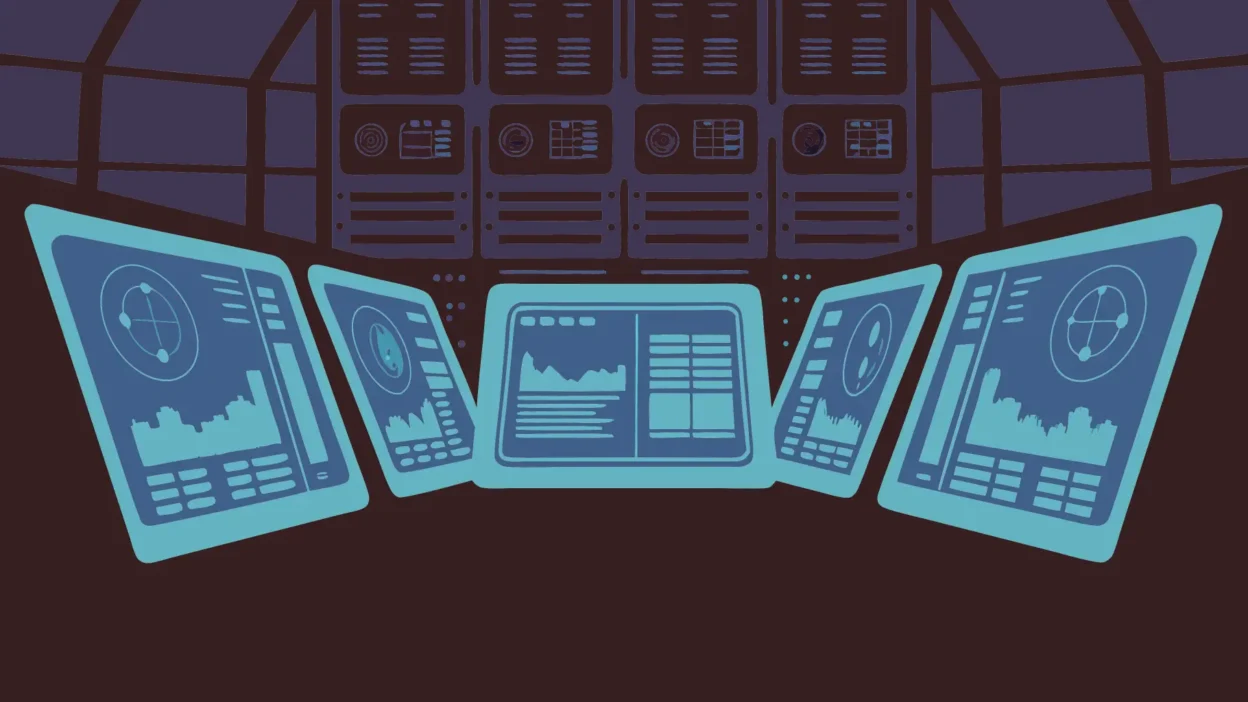

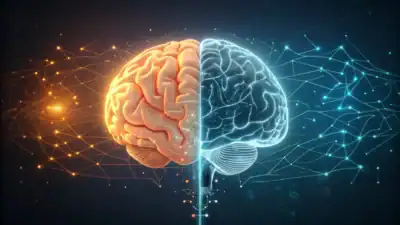

[…] Read More: Agentic AI & Personal Super-Intelligence: Revolutionary AI Partners Transform Your Digital Life … […]
[…] Agentic AI & Personal Super-Intelligence: Revolutionary AI Partners Transform Your Digital Life … […]
[…] Agentic AI & Personal Super-Intelligence: Revolutionary AI Partners Transform Your Digital Life … […]